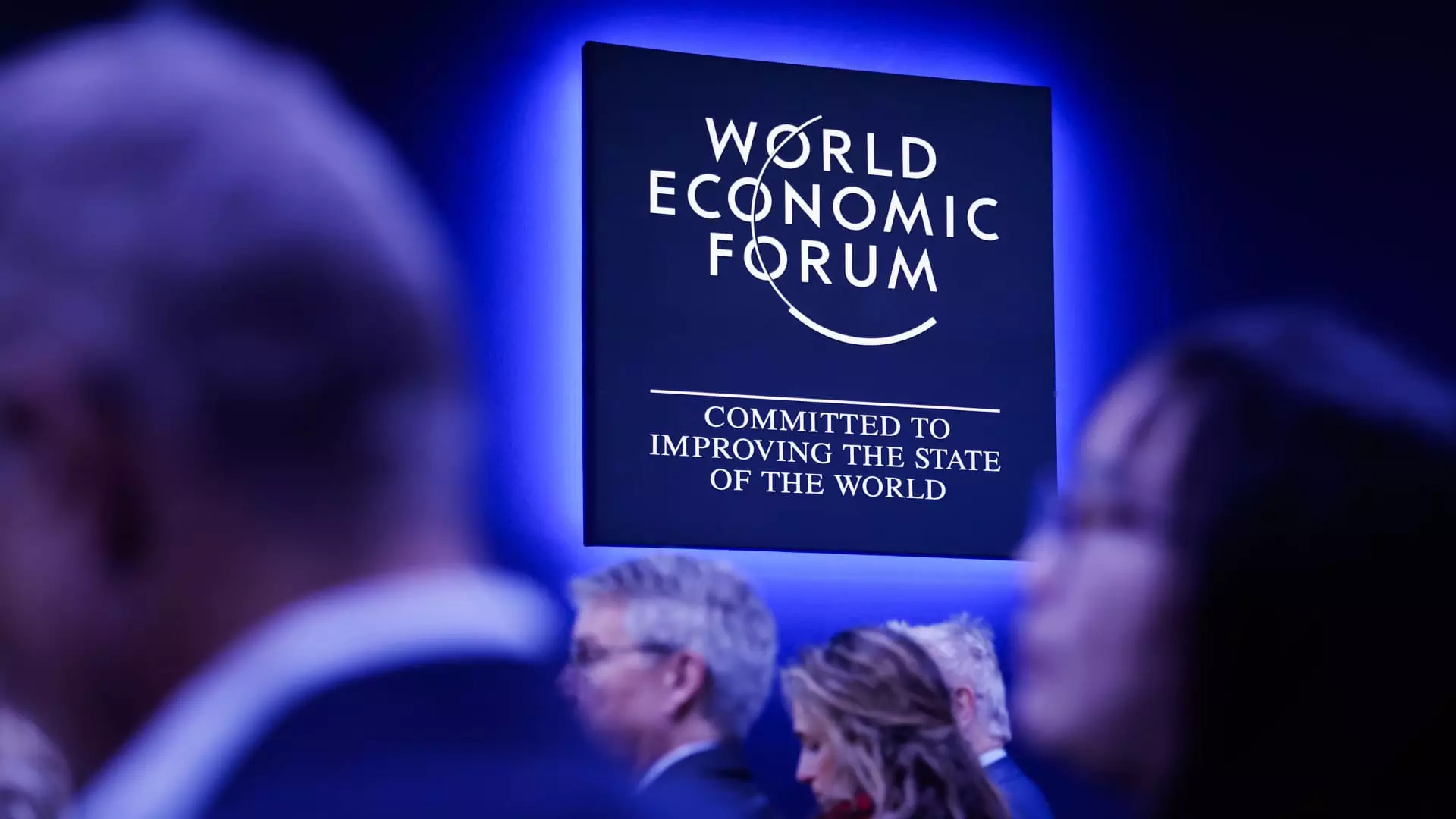The annual World Economic Forum in Davos, Switzerland, has become a crucial stage for global dialogue, particularly regarding significant societal issues. This year’s discussions revolved around three pivotal concepts: diversity, equity, and inclusion (DEI). As societal values evolve, corporate leaders find themselves navigating the complex landscape of DEI initiatives amid shifting political sentiments. Notably, U.S. President Donald Trump’s remarks, where he criticized current diversity programs as “nonsense,” reflect a broader tension surrounding DEI discourse. His approach indicates a resurgence of meritocracy as the focal point, casting a shadow over the importance of inclusivity.
The emergence of executive actions to dismantle federal diversity initiatives has sparked intense debate. While Trump’s executive order primarily affected government entities, its implications reverberated through private sectors as well. The suggestion to revise terminology surrounding DEI shows an inclination towards reshaping the narrative without necessarily altering underlying principles. Despite the politically charged atmosphere, many corporate leaders emphasize a commitment to maintaining their core values of diversity and inclusion.
A range of remarks from executives at the summit reflects a common understanding that diversity in teams enhances effectiveness. One leader articulated the importance of engaging various communities including minorities and veterans, stating that their corporate initiatives are not aimed at political pandering but rather at fostering genuine community engagement. This sentiment resonates with many leaders who assert that despite potential changes in rhetoric due to political shifts, their commitment to inclusivity remains steadfast.
Another notable perspective came from Nasdaq, where leaders reaffirmed the belief that an inclusive work culture is essential for high performance. The emphasis on creating a space where individuals feel free to express themselves contributes to a more dynamic and effective company. This viewpoint resonates within many industries, as the ability to harness diverse opinions is seen as a key driver of innovation and problem-solving.
Despite the general alignment on the importance of diversity, the implementation of DEI policies remains contentious. Some business leaders acknowledge that certain DEI initiatives have faced backlash, suggesting that valid concerns have arisen from specific implementations rather than diversity as a concept itself. Acknowledging the complexities involved in fostering diverse teams, one executive maintained that effective collaboration relies on a variety of experiences and perspectives.
As companies strive to balance traditional meritocratic approaches with diversity-focused initiatives, the necessity for dialogue and understanding becomes paramount. The challenges in executing DEI policies without alienating certain stakeholders demonstrate the need for adaptability. Business leaders are slowly recognizing that as the political landscape fluctuates, they must remain committed to the principle that diversity enhances organizational effectiveness.
A compelling argument for sustaining diversity initiatives lies in the empirical evidence showing that diverse teams are not only more productive but also yield lower risks. Data-driven assessments underscore that organizations embracing diverse perspectives outperform their competitors. Leaders who recognize the tangible benefits derived from diverse teams are better positioned to articulate the value of inclusivity in their operational strategies.
Moreover, the economic implications of fostering a diverse working environment cannot be overstated. As firms compete in a fast-paced global market, the demand for innovative solutions necessitates varied viewpoints. Hence, investing in DEI isn’t merely a moral or ethical consideration; it’s inherently linked to long-term business viability.
The evolving discourse on diversity, equity, and inclusion is emblematic of larger sociocultural transformations. As businesses forge ahead, maintaining a focus on DEI will require balancing ideological convictions with practical applications. Leaders must traverse this landscape carefully, ensuring that policies are both inclusive and align with the prevailing sentiments of their workforce and clientele.
While the current political climate may influence the framing of DEI initiatives, business leaders must steadfastly advocate for the principles of diversity and inclusion as foundational aspects of successful organizations. By fostering an environment that values diverse contributions, companies can drive engagement and innovation, ensuring continued relevance in an ever-changing marketplace.

Leave a Reply